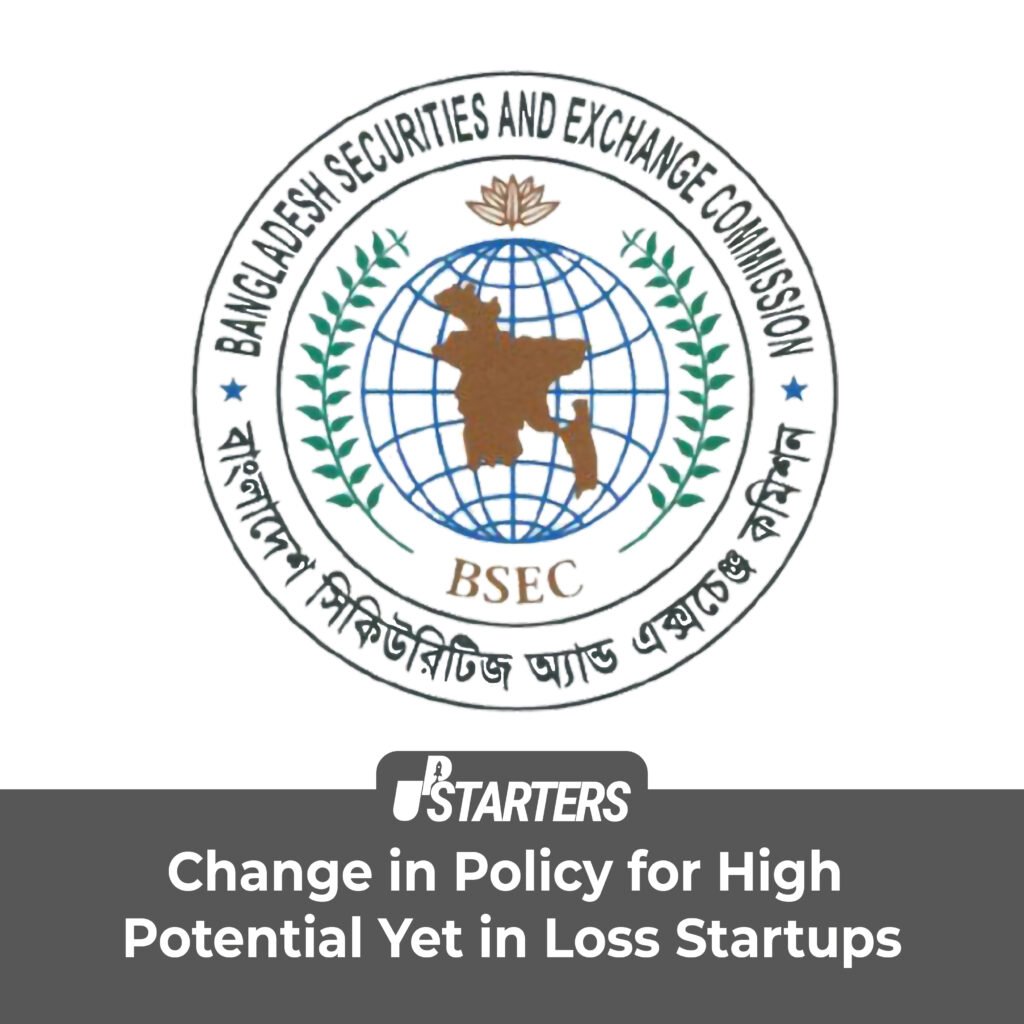-
The BSEC has issued the proposed BSEC (Qualified Investor Offer by Small Capital Company) Rules, 2022 and requested public feedback on the rules by June 10, 2022
-
If a company’s post-QIO paid-up capital is at least Tk 5 crore but does not exceed Tk 50 crore, it can submit an appeal for a qualified investor offer of its securities.
-
Under the change in policy for high potential yet in loss startups firm may also consider the valuation multiple of a comparable stock or the industry average for IQIO, as well as all other considerations justified by the issuer in determining the premium
The Bangladesh Securities and Exchange Commission has prepared guidelines that would allow loss-making start-ups with great growth potential to be listed on the country’s stock exchanges under the small capital platform.
The BSEC draft guidelines also permitted the targeted firm to determine the premium price of shares based on predicted business development to ensure that a loss-making but high-potential business entity received the greatest price through an initial qualified investor offer (IQIO)
Change in Policy for High Potential Yet in Loss Startups
The BSEC has issued the proposed BSEC (Qualified Investor Offer by Small Capital Company) Rules, 2022, and requested public feedback on the rules by June 10. The 2018 BSEC (Qualified Investor Offer by Small Capital Company) Rules will be repealed.
In the new guidelines, the BSEC eliminated the set pricing and book building procedures for raising money through IQIO and reintroduced methodology in accordance with public issue rules, 2006, under which a firm might float shares at Tk 10 par value or with a premium per share.
If a company’s post-QIO paid-up capital is at least Tk 5 crore but does not exceed Tk 50 crore, it can submit an appeal for a qualified investor offer of its securities.
The restriction may be reduced for start-up enterprises with previous commission permission, according to the guidelines.
The usual condition is that the QIO intending firm has a positive net profit after tax for the most recent fiscal year.
The condition might, however, be lifted in rare situations with the commission’s prior agreement, according to the guidelines.
According to BSEC executive director Rezaul Karim, the regulator has preserved the provision of permitting loss-making start-ups with great commercial potential on the stock market.
According to him, the commission abandoned the book building process in order to approve a reasonable premium pricing for an IQIO while taking into account the company’s operations.
Currently, qualified investors choose the cut-off price through a bidding procedure in which malfunctions and manipulations have been noticed, according to BSEC authorities.
According to the new criteria, if a firm wishes to pay a premium, it must justify the premium by referring to net asset value per share at historical or current costs, profits per share computed on the basis of a weighted average of net profit after tax for the five years prior.
It can also establish a premium price based on predicted earnings-based value per share computed on the basis of the weighted average of expected net profit after tax for the following three fiscal years, as determined by the issuer’s own assessment and properly confirmed by the issuer’s auditor.
It may also consider the valuation multiple of a comparable stock or the industry average for IQIO, as well as all other considerations justified by the issuer in determining the premium, it stated.
The premium on QIO shall not be more than the premium paid on shares issued (excluding bonus shares) within the previous year. It is the BSEC’s first attempt to list loss-making companies on the country’s capital market.
According to BSEC authorities, the majority of the fledgling companies were losing money, but many of them had enormous financial potential.
They said that traditional approaches cannot be used to evaluate technology businesses. Earlier in March 2021, 12 startup companies, including Sheba.xyz, and Chaldal, met with the securities regulator and declared their desire to be listed on the stock exchange.
